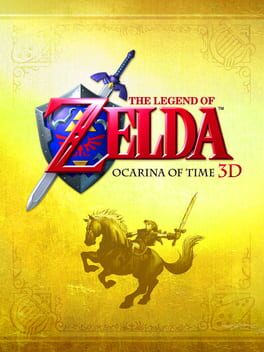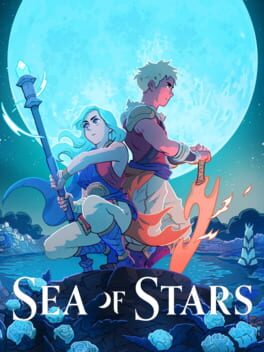Fran889
2 reviews liked by Fran889
Sea of Stars
2023
Sea of Stars is superficially impressive, but as you spend time with it, it's impossible to ignore its gigantic flaws in design. While the game's pixel art, music, and exploration are impressive, the writing and battle and progression system drag it down tremendously.
This game suffers from having a failure to launch. You are stuck on a guided path and drip-fed mechanics at a rate that is unacceptable. The battle system gives a great first impression by combining timed hits, a break system, and characters synergizing. After the first couple hours I was ready to unlock new skills and start having some strategic battles... but it took 8 hours to add a fourth character and third special attack. I assumed that surely now it would open up, but it got stale again after an hour or two, and the game took another 8 hours before adding ultimate attacks and a 5th character.
Having all characters level up at the same time and assigning points to them also seemed interesting at first, but it really made it really feel like your level and choices had no effect on the battle system. It's a game with a lot of forced encounters and not designed around grinding, but it always feels easy. The challenge comes from preserving your resources between save points, which are pretty generous.
The battle and progression system's limitations would have been excused if there was a good narrative behind the game, but the story lacked focus and needed a lot of editing. The first hour is extremely slow, and the story only gets more long-winded and pointless as the game goes on. The story makes pacing very uneven, with smooth sailing when the story is in the background, but long story diversions drag out everything. The story is told in a way too complicated for its own good. The idea of a true ending might tantalize some players but the base story is not noteworthy enough to earn my desire to go for it.
The game meanwhile plays a little bit of a trick on the audience by convincing them it's streamlining things, when what its streamlining isn't exactly a problem. The exploration is based around unlocking shortcuts on the map, the enemy encounters are telegraphed, all party members gets upgraded at the same time including fainted characters, and the game has party members resuscitate themselves without having to use an item. But these aren't 'problems' to fix. Having a phoenix down in battle or characters at different levels or the looming threat of a unexpected encounter make JRPGs more strategic. You aren't 'saving the player time' when your game still has areas with too many battles and too much mandatory dialogue. In fact, not being able to escape battles can be extra annoying with respawning or cloning enemies.
Ultimately, I don't think this game really understands the full appeal to the games it tries to imitate like Chrono Trigger/Golden Sun/Secret of Mana. Those games give you a sense of freedom that this game lacks. Even if it's linear, you can break open their systems as you see fit. This game however refuses to take off rails and once you understand the puzzle you want it to do, it loses the charm.
This game suffers from having a failure to launch. You are stuck on a guided path and drip-fed mechanics at a rate that is unacceptable. The battle system gives a great first impression by combining timed hits, a break system, and characters synergizing. After the first couple hours I was ready to unlock new skills and start having some strategic battles... but it took 8 hours to add a fourth character and third special attack. I assumed that surely now it would open up, but it got stale again after an hour or two, and the game took another 8 hours before adding ultimate attacks and a 5th character.
Having all characters level up at the same time and assigning points to them also seemed interesting at first, but it really made it really feel like your level and choices had no effect on the battle system. It's a game with a lot of forced encounters and not designed around grinding, but it always feels easy. The challenge comes from preserving your resources between save points, which are pretty generous.
The battle and progression system's limitations would have been excused if there was a good narrative behind the game, but the story lacked focus and needed a lot of editing. The first hour is extremely slow, and the story only gets more long-winded and pointless as the game goes on. The story makes pacing very uneven, with smooth sailing when the story is in the background, but long story diversions drag out everything. The story is told in a way too complicated for its own good. The idea of a true ending might tantalize some players but the base story is not noteworthy enough to earn my desire to go for it.
The game meanwhile plays a little bit of a trick on the audience by convincing them it's streamlining things, when what its streamlining isn't exactly a problem. The exploration is based around unlocking shortcuts on the map, the enemy encounters are telegraphed, all party members gets upgraded at the same time including fainted characters, and the game has party members resuscitate themselves without having to use an item. But these aren't 'problems' to fix. Having a phoenix down in battle or characters at different levels or the looming threat of a unexpected encounter make JRPGs more strategic. You aren't 'saving the player time' when your game still has areas with too many battles and too much mandatory dialogue. In fact, not being able to escape battles can be extra annoying with respawning or cloning enemies.
Ultimately, I don't think this game really understands the full appeal to the games it tries to imitate like Chrono Trigger/Golden Sun/Secret of Mana. Those games give you a sense of freedom that this game lacks. Even if it's linear, you can break open their systems as you see fit. This game however refuses to take off rails and once you understand the puzzle you want it to do, it loses the charm.

